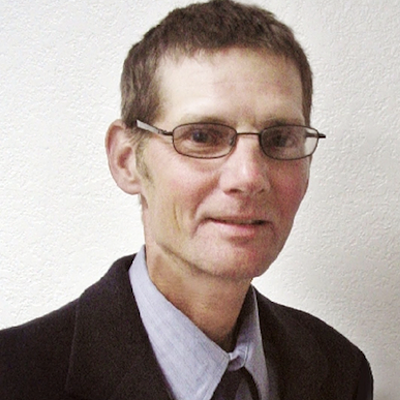And by July 1, under a plan advanced by Pima County officials, Kino will begin its transformation into a psychiatric hospital, Kino and county officials say.
The Board of Supervisors was given a private briefing May 13 on broad plans to restyle Kino and on negotiations to turn over control of the 26-year-old hospital to University Physicians Inc. under a no-cost lease beginning July 1.
Supervisors voted unanimously in March to pursue the lease with University Physicians, the nonprofit medical practice organization of the University of Arizona College of Medicine. Supervisors were told in that long session that UPI's phased-in operation would eventually restore a fuller range of medical services at Kino, which was built and equipped with bonds twice approved by voters.
Instead, Kino and county officials are moving closer to complete an original plan to convert the hospital into a psychiatric facility.
Each effort is driven by the hope of County Administrator Chuck Huckelberry and other county officials to cut Kino's deficits that have topped $70 million in the last five years. Under Huckelberry's recommended budget--one that tops $1 billion for the first time in county history--Kino will have $59.7 million. Revenues are expected, under that budget, to be only $44.5 million.
In 1999, taxpayers provided a big bailout to Kino and the health system deficit that hit about $60 million. Property taxes shot up by 11 percent. But neither that, nor the roughly $3.75 a month the owner of a $100,000 pays to cover Kino's current operating deficit, has resulted in political or public pressure to close or shed Kino.
Kino's emergency room already has seen a big drop in patients, with most emergency responders diverted to other hospitals.
Doctors, including those in Kino's emergency room, will find themselves out at the end of June. Most have already lined up other jobs or are working to do so.
Huckelberry has vowed to place nurses, therapists, aides and other health care workers at Kino, as well as technicians and hospital bureaucrats whose jobs will be cut, into other jobs in other parts of the county health system or in other parts of county government. Kino has more than 700 employees.
Kino and county officials also must complete work to change the hospital's license with the state Department of Health Services to reflect the change to a psychiatric hospital. The license now permits Kino 203 beds, of which 126 are for medical and surgical patients, 13 for intensive care and critical care and 64 for psychiatric patients.
The sweeping changes will mark the first time in Kino's history and that of its predecessor Pima County hospitals that the county has not provided direct hospital care.
Once a gleaming showpiece with private rooms, Kino bustled as the only hospital south of Broadway Boulevard. Its emergency room and trauma services had bigger numbers than University Medical Center.
In its fifth year, Kino hit a slide that coincided with the advent of the state's Medicaid alternative for indigents, the Arizona Health Care Cost Containment System. A faulty formula had the county paying too much into the AHCCCS and Kino, then under the management of Hospital Corporation of America, suffered under the strain of late or missed payments.
The Board of Supervisors placed in the hospital investigator Bill Heuisler, a former cop and conservative political candidate who narrowly lost races for City Council and county offices. Heuisler found major problems in supply and materials, as well as nonexistent security--including with narcotics--and stacks of bills that were never sent. Heuisler and his findings upset hospital management, and the Board of Supervisors majority created reasons to terminate his work.
But his diagnosis of billing lapses in 1985 highlighted what would become a fundamental and historic problem. Millions of dollars in accounts that could have been paid, through the years, by state and federal health care programs or insurers, went uncollected because of Kino's failure to update medical codes and its simple failure to send bills.
Kino rebounded after Hospital Corporation of America, founded by the father of Dr. Bill Frist, a Republican senator from Tennessee, was ousted and replaced by Schaller Anderson. Kino's huge deficits were tamed from 1990-92 and, with the better management and use of the integrated county health system that created a "wheel of money" with a bigger patient base, Kino was nearing break-even.
County officials were also close to spinning off Kino as a nonprofit corporation that would have been freed from the Board of Supervisors. But that was halted by a peculiar vote by the Republican majority that took control of the Board of Supervisors in 1993. Though those Republicans, Ed Moore, Mike Boyd and Paul Marsh, professed less government and favored dumping Kino, their actions stopped that spin-off.











